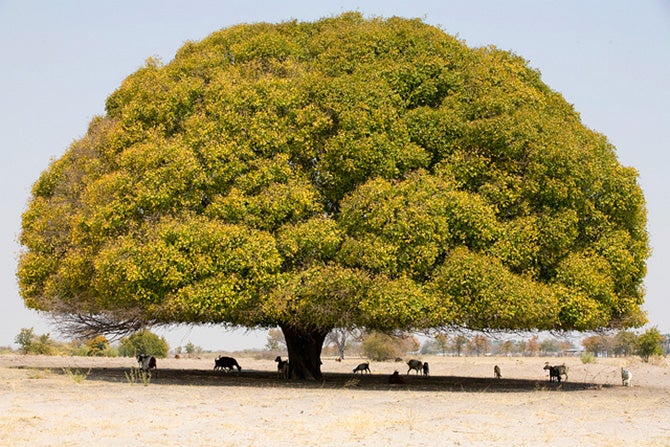
I was about 13 years old when my family organized a trip to the village of Mpangou, in the Republic of the Congo. Travelling to the village was an event for us kids of the city – a new world. I remember packing our generators, cd players and speakers to bring a bit of our urban lives with us, and my mother telling us to buy candies and biscuits as gifts for the people. The road was full of potholes, and the men often had to push our cars forward through the mud, but at last, we got there.
I could not help but wonder how I would survive in the village. Although we had electricity, music and food, we still had to go to the coldest water stream at 5am in the morning to shower. At night, we had to fight against the mosquitoes’ music festivals, held as close as possible to our ears. Little did I know I would enjoy it and a gain a valuable lesson from this trip. The nights were the best times: the whole village gathered around the fire to share meals, the indigenous people observed from afar, drawn by the sound of our music and scattered at the slightest flashes from our cameras; exploring the neighboring towns without our parents knowing… and in the midst of all this, one particular event called the Mbongui drew my attention.
The Mbongui is a cultural event in our villages, often happening under the shadows of a big tree, where the elders and the wise individuals of the village settle issues amongst villagers, make big announcements such as funerals and weddings and initiate the transfer to adulthood of the young people of the village. Under the Mbongui, the youth learn what it means to be an adult, they gain the wisdom needed to make the best of their adulthoods and are prepared to be able to take over once the need arises. They learn the practical skills needed for their social, professional and family lives, and are taught the values of respect, honesty and confidence. They gain in-depth knowledge of their families’ history, thereby developing a strong sense of identity and awareness.
African youth, and youth in general, should learn about the positive sides of our cultures and gain lessons from it. It is estimated that three out of four Africans will be an average 20 years old by 2020, making Africa the most youthful continent on the planet. As such, the state of the African youth has long been debated: its challenges, opportunities; downfalls and successes. In most of these statements, the professional drive, entrepreneurship, employment and education are tackled. Although they are very important, the transfer of ethics and human values that is so dear in the African traditions is minimized.
It is often said that the “youths are the leaders of tomorrow” but tomorrow is only the continuation of today: what has not been planted today will not grow tomorrow. Leadership is not just about the technical skills and capacities, the academic excellence and degrees, or the entrepreneurial spirit. It is also about maturity, teamwork, integrity, communication, interpersonal skills, empathy, wisdom and many other similar values often gained in adulthood. As we teach the youths today, to be the best that they can be, it is imperative that we – the peers, societies, institutions and governments – encourage the place and role of values in leadership.
The World Bank Group will be launching the Open Learning Campus in November to encourage knowledge-sharing and provide access to solution-based education to all. This online platform will not only provide technical solutions to development issues, but also innovative learning modules on leadership and transparency.
As young people advocate for increased holistic support from peers, governments, the private sector and the international community to help make a change in our communities, they should also strive to learn more about the human skills that will take the impact of their initiatives to the next level.
Let’s go to the Mbongui.


Join the Conversation